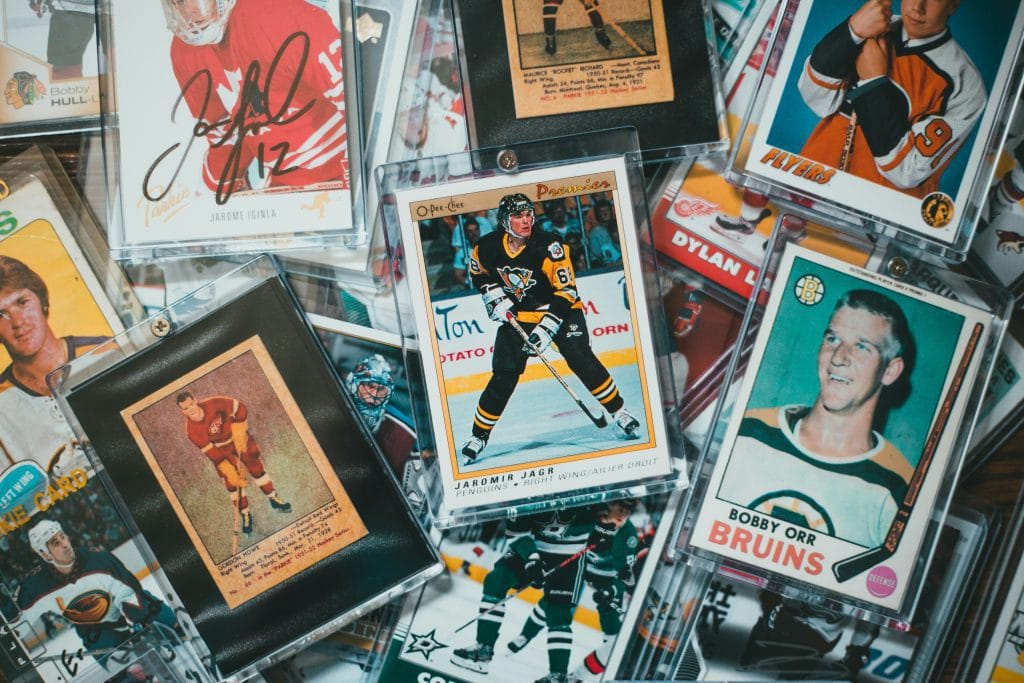


Business Opportunities in Sports Memorabilia Authentication

The Rising Value of Sports Memorabilia
Sports memorabilia has evolved into a billion-dollar global industry, attracting collectors, investors, and casual fans alike. Items such as signed jerseys, trading cards, game-worn equipment, and championship rings are no longer viewed as simple keepsakes—they are assets with tangible value. According to recent reports, the global sports memorabilia market is projected to exceed $30 billion by the end of this decade, driven by nostalgia, digital marketplaces, and the growing sophistication of collectors.
Yet, with high value comes high risk. Counterfeit items have flooded the market, eroding consumer confidence and undermining legitimate sellers. This surge in fakes has created an expanding niche: authentication. Entrepreneurs who can verify authenticity with precision, transparency, and trust are finding enormous potential in this specialized field.
As collectors spend more online, the ability to confirm that an autographed baseball or signed basketball shoe is genuine is becoming essential. Businesses that bridge that trust gap are thriving, making sports memorabilia authentication one of the most promising areas for innovation and investment.
Understanding the Authentication Landscape
The authentication industry is structured around verification, certification, and provenance tracking. Companies like PSA, Beckett Authentication Services, and James Spence Authentication (JSA) have set the benchmark by combining expert analysis with secure documentation systems. These firms typically employ specialists trained in handwriting, materials, and historical patterns, using magnification, ultraviolet light, and forensic tools to confirm authenticity.
However, technology is rapidly transforming the field. Blockchain verification and digital certificates are now replacing traditional paper certificates of authenticity. Platforms such as Collectable and Alt are introducing ways for users to trade authenticated sports assets digitally, complete with ownership records that cannot be altered. This shift is opening new doors for startups willing to blend sports culture with technology.
Beyond physical inspection, data-driven authentication is becoming a differentiator. Artificial intelligence is being trained to identify fraudulent signatures and mismatched materials. Entrepreneurs entering the space are now developing proprietary algorithms and digital fingerprinting tools to elevate accuracy and efficiency.
Emerging Business Models and Niches
The business opportunities surrounding sports memorabilia authentication extend far beyond traditional grading or certification services. Entrepreneurs are building companies across multiple layers of the value chain—from digital tracking solutions to white-label verification partnerships with auction houses and e-commerce sites.
One emerging niche involves integrating authentication directly into resale platforms. Marketplaces like eBay and Fanatics have already partnered with authenticators to validate high-value listings. Entrepreneurs who can streamline that verification process or make it more cost-effective will find demand from both consumers and retailers.
Another opportunity lies in on-demand authentication at live events. Imagine a mobile team providing instant verification services at sports conventions, memorabilia shows, or charity auctions. The immediacy of such services not only adds value but also builds trust in a market that relies heavily on credibility.
Entrepreneurs may also explore fractional ownership of authenticated collectibles. By partnering with blockchain-based platforms, they can make premium items accessible to a broader investor base. This approach appeals to younger demographics who view sports memorabilia as an alternative investment class, similar to fine art or rare whiskey.
Integrating Technology into Verification
The authentication industry is increasingly dependent on advanced technologies that can protect buyers and sellers. Artificial intelligence, blockchain, and near-field communication (NFC) tags are now central tools in modern verification systems. Startups such as Verisart and Authentify Art are leading innovation by using blockchain to create tamper-proof certificates and digital twins for physical items.
Entrepreneurs who embrace this technology can create new revenue models that merge sports, security, and data. For instance, an NFC chip embedded in a signed football helmet can connect to a digital record, accessible through a smartphone scan. This record verifies authenticity, ownership history, and even past appraisals. Each scan adds another layer of transparency and value.
Integrating machine learning also presents opportunities for predictive authenticity scoring. Systems can analyze signature variations, ink age, and item wear to generate a likelihood rating. Collectors benefit from added confidence, while marketplaces can automate the review of submissions, saving time and reducing disputes.
Technology does not eliminate human expertise—it enhances it. Combining human evaluators with digital verification systems creates a hybrid model that balances experience with efficiency. Startups entering this space must recognize that credibility still depends on trust in the human element, even when technology takes center stage.
Monetization Strategies and Growth Potential
There are multiple ways for entrepreneurs to monetize within the sports memorabilia authentication market. Subscription-based verification models are gaining traction, where collectors pay a monthly or annual fee for unlimited or discounted authentication services. This recurring revenue model creates predictable income while strengthening customer relationships.
Partnerships with online marketplaces or auction houses also present steady opportunities. By providing authentication-as-a-service, companies can integrate directly into transaction platforms, taking a small commission per verified sale. This approach aligns incentives and scales easily as platforms grow their listings.
Another monetization avenue involves data analytics. As authentication companies accumulate data from thousands of verified items, they can analyze market trends, price movements, and emerging athlete popularity. Selling access to these insights provides a new revenue stream catering to investors and professional traders of sports collectibles.
There is also an educational component. Entrepreneurs can build online certification courses that teach authentication techniques, expanding the talent pool and creating community engagement. These courses, combined with workshops or webinars, offer brand visibility and credibility.

Overcoming Industry Challenges
Despite its promise, the authentication sector faces real challenges. The biggest is maintaining credibility. Even a single high-profile error—authenticating a fake or mislabeling an item—can damage trust irreparably. This is why building strong internal controls and transparent verification methods is critical for long-term success.
Regulation is another emerging concern. As collectibles increasingly overlap with investment assets, federal and state regulators may begin to impose stricter guidelines. Entrepreneurs must be ready to comply with evolving laws governing consumer protection and financial transparency.
Competition is intensifying as well. Established brands have loyal followings and reputations that take years to build. Startups can differentiate by focusing on niche segments such as regional sports leagues, college athletics, or women’s sports, where the authentication ecosystem is less mature but rapidly expanding.
Finally, scalability presents a challenge. Manual authentication is time-consuming, requiring skilled professionals. Building technology that complements expert review—rather than replacing it—will help companies expand without compromising accuracy.
Entrepreneurial Pathways in the Market
Entrepreneurs entering this space can pursue several viable paths depending on their expertise and resources. Some may prefer building an independent authentication company focused on digital and physical verification. Others might develop backend software for existing authenticators, supplying white-label blockchain tools or AI models that streamline operations.
Those with connections in sports management can collaborate with athletes and teams to issue authenticated memorabilia directly from the source. Authenticity can then be guaranteed from the moment of signing, creating traceable, premium-grade collectibles.
Another avenue is investment aggregation. Entrepreneurs could develop a platform for fractional ownership and portfolio management of authenticated memorabilia, similar to what Rally offers for collectible assets. This would allow individuals to invest in pieces of high-value items like game-used bats or championship rings without owning the full item.
Sports media companies, too, are potential collaborators. By integrating authentication services into coverage of key events, these organizations can offer fans a trusted way to purchase verified items connected to their favorite moments. The synergy between storytelling and ownership amplifies emotional and financial value.
Building Trust and Brand Authority
Trust is the foundation of any authentication business. Entrepreneurs must communicate transparency and reliability through every stage of their operations. That includes clear documentation, accessible customer support, and visible partnerships with recognized institutions or athletes.
Establishing credibility often involves certification from recognized associations or forming partnerships with sports leagues. Connecting with organizations like the National Sports Collectors Convention can also open doors to exposure and networking opportunities.
Marketing strategies should focus on education and community engagement. Publishing content that teaches collectors how to spot fakes, track provenance, or understand market trends not only builds authority but also positions the brand as an ally in protecting the industry’s integrity.
Social proof plays an important role as well. Displaying endorsements from respected figures or showing verified success stories builds immediate confidence. As the market grows, consumers will increasingly prefer brands that align authenticity with transparency and service excellence.
Key Takeaways
The sports memorabilia authentication market represents a convergence of passion, technology, and trust. With rising global interest in collectibles, entrepreneurs who can combine expertise with digital innovation are well positioned to capture substantial opportunity. Whether through blockchain verification, AI-based forensics, or partnerships with major marketplaces, the field rewards precision and credibility.
Beyond profit, businesses in this space contribute to preserving sports history and protecting consumers from fraud. The blend of nostalgia and technology makes this an especially exciting frontier for entrepreneurs ready to enter a market built on legacy and trust.
As authenticity becomes currency, the entrepreneurs who build systems that verify and preserve truth in sports collectibles will define the next generation of value creation in this unique and growing industry.
Photo by Mick Haupt on Unsplash
Photo by Erik Mclean on Unsplash





